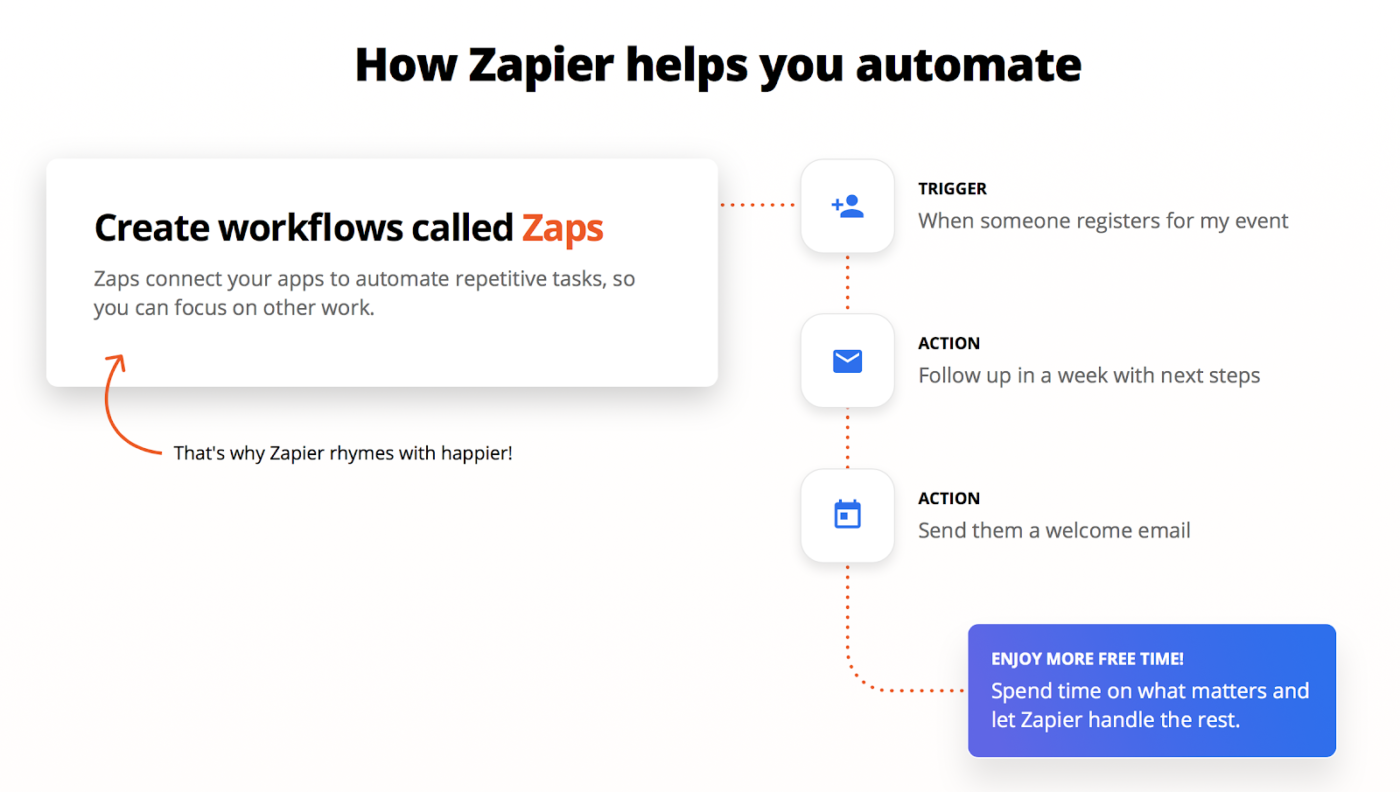This article will list out the best customer relationship management tools for e-commerce brands along with how to achieve such digital customer experience, so you can learn about which is best for you and your business.
A CRM system is a technology that manages customer relationships, along with the data associated with them, including customer satisfaction and behaviors, purchases, activity and more. Customer Relationship Management goes way beyond email addresses and acts more like a record from the start of the client relationship, to the current stage of the client relationship and how to maintain that customer retention.
When it comes to ecommerce brands, there are specific CRM tools that each offer different functionalities. We’ll take a look at the pros and cons of these tools, along with helpful information to decide which one is right for you to provide maximum productivity and improve client relationship management.
You’ve probably heard of Salesforce, Zoho, Zapier, and HubSpot, as they’re quite popular. They each have their positive and negative attributes so it’s up to you to make your own decision as to which tool is more beneficial to your business. Let’s get started with Zapier first and you’ll see why.
Zapier
Zapier, the online automation tool, allows for easy integration of your customer communication platform like ManyChat. Zapier allows you to instantly connect with 2,000+ apps to automate your work and increase productivity. Amazing, right? Basically, it’s the glue that connects thousands of web apps, hence the reason we’re starting with it.
Image Source: Zapier.com
You can connect two or more apps to automate tasks without coding and move the information between them.This gives you unlimited opportunities for using a Messenger Marketing platform together with your favorite CRM and email marketing services.
Zaps are workflows that connect these apps, so they can work together. They start with a trigger, meaning an event in one of your apps that kicks off your workflow and automates tasks in the background, so you can focus on more important work.
Zapier is the solution for all the questions below you may have asked:
- How do I send leads generated through ManyChat to my CRM so that I can follow up via email or on the phone?
- Can I connect ManyChat with my current customer service platform… so that my team isn’t having conversations in two platforms?
- How can I tell if someone who interacted with our Facebook bot is already a buyer or lead?
- How do I integrate ManyChat into the other tools and systems I’m using in my business?
As mentioned, Zapier is the “connector” between tools in your business. For example, through Zapier, you can now connect ManyChat with almost any webinar platform within minutes and with zero knowledge of coding.

Zapier gives business owners and marketers hundreds of ways to integrate Facebook Messenger bots into their current business systems and tools. It’s easy enough that anyone can build their own app workflows with just a few clicks.
Zapier and an integration with ManyChat solves the problem of teams having conversations inside of their customer service/sales platform (hubspot, salesforce, zoho, etc.) AND inside of the live chat feature in ManyChat.
Having conversations in two platforms causes confusion about which rep is speaking to which customer. When you’re in two platforms, you also aren’t able to access historical data on past interactions with prospects and customers. Definitely not an efficient or productive workflow.
Below are pros and cons of zapier, gathered from multiple sources to give you a wide variety of viewpoints and information:
Zapier Pros:
- Supports tons of apps
- Powerful automation
- Convenient for users
- Flexible pricing
- Excellent automation services between business, productivity, and CRM applications
Zapier Cons:
- No mobile apps
- No support for smart home devices
- Nothing. It’s an amazing product
- For active Zaps, their error messaging is not great. It would be helpful to have more data on why a zap has failed
There are a lot more pros and cons out there when it comes to Zapier. It’s really an incredible tool.
Salesforce
Our next CRM tool to evaluate for eCommerce is Salesforce. Zapier gives you the capability to connect ManyChat and Salesforce, with 90 possible integrations.
Image Source: Zapier.com
What is Salesforce? It’s a cloud-based software company that provides management CRM service and also sells a complementary suite of enterprise applications focused on customer service, marketing automation, analytics, and application development.
Salesforce is a leading enterprise CRM application where you can connect to your types of customers through the entire sales cycle. Salesforce is especially powerful when combined with your other apps through automation, like Zapier, as mentioned above.
Image Source: Zapier.com
Below are pros and cons gathered from multiple sources to give you a wide variety of viewpoints:
Salesforce Pros:
- Customizability, it can fit your company through your needs and your current functionalities
- Comprehensive and complete CRM
- Easy-to-navigate software
- Connecting Salesforce and ManyChat is easy and requires zero coding experience
Salesforce Cons:
- Expensive
- Interface is cluttered and can be hard to navigate
- The learning curve never seems to end
- Too many options and features, it could hide what you don’t have the need to add/use to make the interface cleaner
There seems to be a similar amount of positive versus negative feedback about Salesforce.
HubSpot
Hubspot is one of the best designed and best marketing automation tools, which explains why they have the highest number of customers among all marketing automation tools. HubSpot CRM is everything you need to organize, track, and nurture your leads and customers.
ManyChat’s integration with HubSpot CRM allows you to perform the following Actions:
– Submit data to a form. Send Custom Field data to HubSpot form. Form submissions can be made to any registered HubSpot form.
– Create/Update Contact Properties. Create a contact if it doesn’t exist in HubSpot already, or update it with Subscriber’s Custom Fields if it does. An existing contact will be identified by its email address.
– Get Contact Properties. Return information about a single contact by their email address and process it to Subscriber’s Custom Fields.
HubSpot is designed to be at the center of all of your marketing efforts, not just the part where you keep your contacts. For one place to keep track of everything, from your blog posts to drip email campaigns to leads and deals, HubSpot is one of the few apps that does everything to help you turn your marketing into sales.
Below are pros and cons gathered from multiple sources to give you a wide variety of opinions and information of what HubSpot offers:
HubSpot Pros:
- Given the complexity of marketing automation software, they have done a great job of making it intuitive for small business owners with little or no coding ability.
- It is free and offers unlimited users
- HubSpot focuses on simplicity and usability rather and competing for the most features or customization
- Outstanding email integration features
- After years of using Salesforce, I welcomed the opportunity to test HubSpot new CRM…tons of potential
Hubspot Cons:
- Pricing can add up once premium functions are added
- Here are even better alternatives that cost 20x less
- HubSpot is expensive
- Creating workflows can get tricky and confusing.
- For a new user, it’s difficult to understand the interface of the HubSpot and its automation are complicated.
People seem to really enjoy HubSpot, but you’ll have to decide for yourself if this CRM software provides you with everything you need.
Zoho
In a matter of minutes and without a single line of code, Zapier also allows you to connect ManyChat and Zoho CRM, with as many as 144 possible integrations. It just keeps getting better, right?
Zoho CRM is a web-based CRM software designed to attract, retain, and satisfy existing and potential customers to grow your business. Image Source: Zapier.com
Zoho CRM is one of the best customer relationship management apps on the market. It has the features you need to keep track of your contacts, leads, and deals, and turn that data into detailed reports.
Zoho CRM was built to integrate with other apps and services you use every day. Deep integration with other apps, like ManyChat, lets you customize how you work with Zoho CRM.
Image Source: Zapier.com
Zoho CRM is an affordable, yet full-featured customer relationship management tool. It’s a great management software option for tracking your leads and deals and has several tiers of service so that you can upgrade as your business grows.
Below are pros and cons gathered from multiple sources to give you a wide variety of opinions and information:
Zoho Pros:
- Ease of conversion from a lead to an account
- Powerful email marketing tools
- Ease of integration with other software
- Great for small businesses
- Customizable CRM Offers Great Flexibility
Zoho Cons:
- Workflow automation limited to Professional Tier
- Sometimes there are bugs in entering the data
- Would be nice if it logged out after a period of no activity
- Be ready to bide your time while waiting for support
- If you want to keep your sanity, then stay away from ZOHO
You’ll notice that there are pros and cons to all of the automation tools and CRM platforms discussed in this article. The good news is whatever preferences and workflow needs you are seeking to maximize productivity, communication, and sales, there are customer relationship management tools out there for everyone. What works for one business doesn’t necessarily work for another and that’s okay.
Whether it’s Zapier, Salesforce, HubSpot, Zoho, or thousands of other automation tools and CRM platforms available, ManyChat helps you to connect to the tools you already use and the best part is integration is easy.












